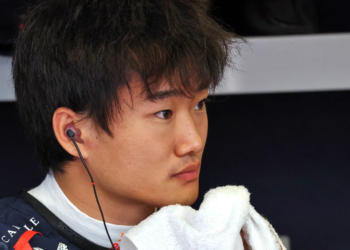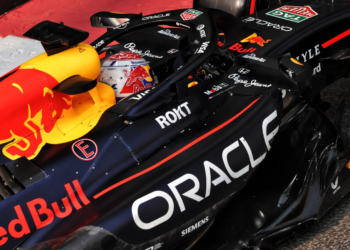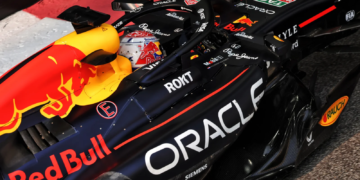Liberty Media’s President says the corporation has “scenarios for zero races” in 2020 and has advanced some payments to a handful of Formula 1 teams.
Formula 1 is on hiatus until at least July due to the coronavirus pandemic, with all 10 teams currently on lockdown across facilities in the UK, Italy and Switzerland.
The financial situation is a major pressing concern for the sport and has led to several measures, including an extended factory shutdown period, and the deferment of new regulations.
Each team receives a percentage of Formula 1’s overall profits as a means of income, with the figure set to take a substantial hit on account of the absence of any events having taken place in 2020.
“We have advanced money in advance of team payments for certain teams already, there are cases where we might do more of that,” said Liberty Media CEO and President Greg Maffei during a conference call with investors on Thursday.
“There’s other things we might do to bridge teams who may need help; we’re not viewing this as an open cheque book.
“We want to make sure the teams are solvent as they are part of what we need to race successfully in 2020, 2021 and beyond.”
Formula 1 is understood to be working on a plan that involves commencing the season with a sequence of races in Austria and Britain in the summer.
Maffei cautioned that any event that takes place without spectators would still pose further challenges to the sport on a financial basis.
“We have scenarios for zero races, anywhere from 15-18 races, races that begin with no fans present and only the teams, we really have a host of opportunities or challenges on all fronts,” said Maffei.
“[Formula 1 CEO] Chase [Carey] and his team are presented with multiple options including: until you know the timing how do you ask someone to move an existing race in place of another race [when] you don’t know when [the country is] open.
“If you run races with no live audience we will obviously have lower profitability and, maybe even no profitability, we may be capitalised sufficiently to handle that for 2020, but there are teams that will incur costs, particularly those that don’t have minimum guarantees from F1, and their major revenue sources is their share of the profits of F1
“That’s one of the reasons why we need to be thoughtful of how we begin that is not only good for us but good for the ecosystem.
“Chase and his team have run multiple scenarios. It’s not only when we are allowed by authorities, and in what format, but how does it work for the teams? How do we do something beneficial for fans but also doesn’t have the teams bankrupting themselves by conducting no profit or loss races?”
Unlike other sports, in which getting athletes back up to full fitness after a fallow spell is likely to lead to necessitate a mini pre-season period, Maffei added that one of Formula 1’s major challenges will be getting everyone involved clear to be present in a specific location.
“The lead time [for an event] depends on a lot of things: how quickly can you get a team, or a series of teams, which have been viewed as clean, to a location, where that location is, I think there’s a lot of variables there,” he said.
“There is a major benefit [compared to some sports] that you don’t need two weeks of spring training to get drivers back in form like [baseball] players need to be.
“They can race any time when you can get them and their team to a location safely.”










Discussion about this post